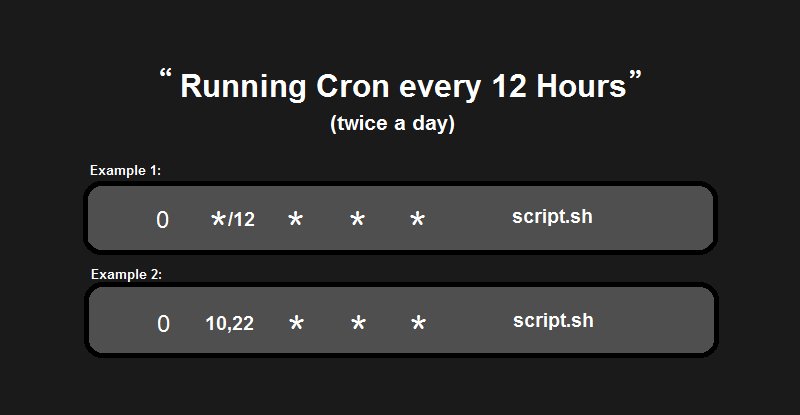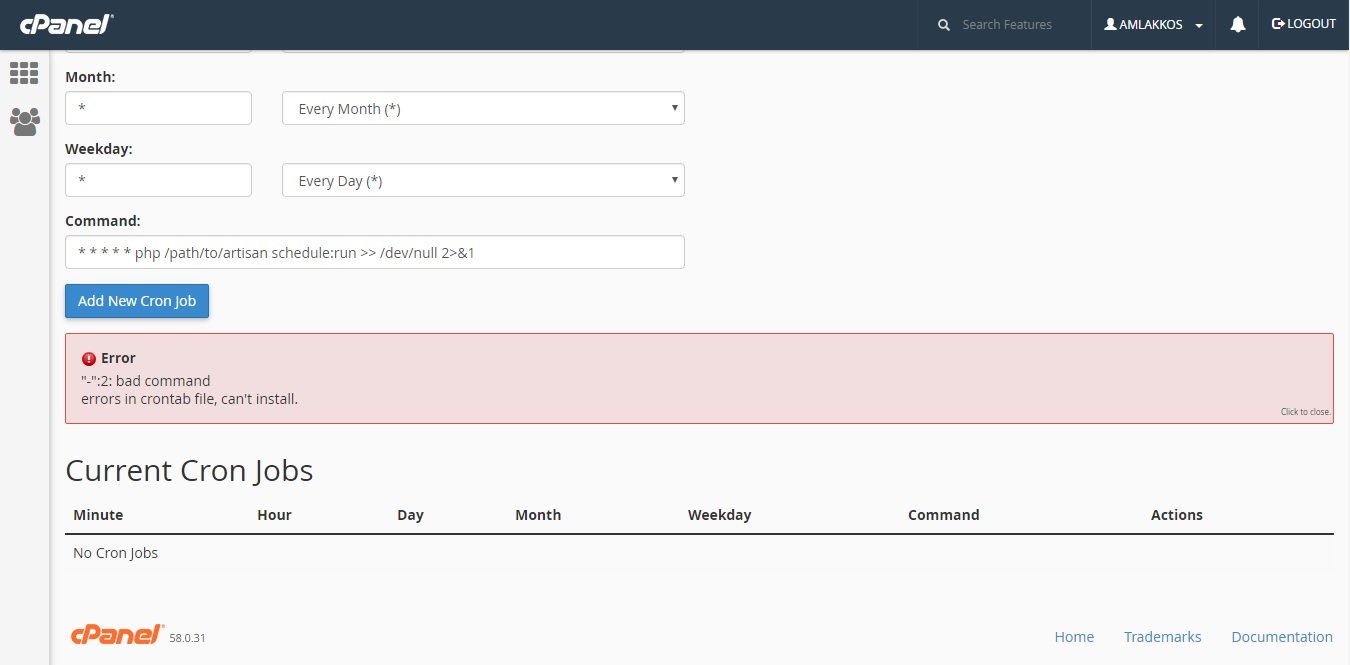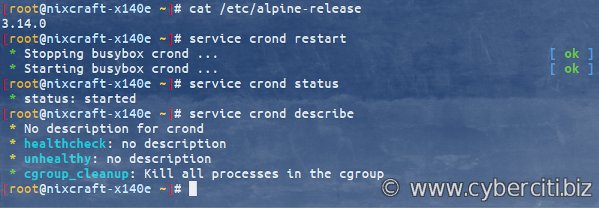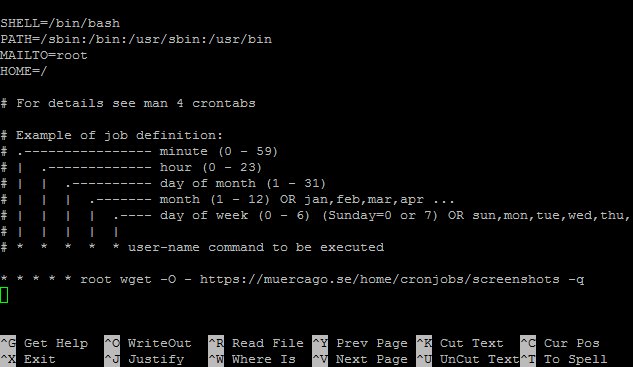Looking to run a cron job every 1 hour? You’ve come to the right place. In this article, we’ll explore the ins and outs of setting up a recurring task that runs once an hour using a cron job. Whether you’re a developer wanting to automate certain processes or a system administrator looking to streamline routine tasks, understanding how to schedule a cron job at an hourly interval is a valuable skill. So, let’s dive in and learn how to efficiently execute a cron job every 1 hour without any fuss.
Cron Job Every 1 Hour: Automating Tasks for Efficiency
In the digital world, automation has become an integral part of streamlining processes and maximizing efficiency. When it comes to scheduling tasks and executing them at specific intervals, cron jobs are the go-to solution. These nifty tools allow you to automate repetitive tasks, freeing up your time and resources for more important endeavors. In this article, we will explore the concept of running a cron job every 1 hour and delve into its various applications. Whether you are a seasoned developer or a novice exploring the world of automation, this comprehensive guide will help you understand the power and convenience of running cron jobs on an hourly basis.
Understanding Cron Jobs: A Brief Overview
Before we dive into the specifics of running a cron job every hour, it’s essential to have a basic understanding of what cron jobs are and how they function. Cron is a time-based job scheduler in Unix-like operating systems. It allows users to schedule tasks to run automatically at designated intervals, whether that be daily, weekly, monthly, or even every minute.
Cron jobs are executed by the cron daemon, a background process that runs continuously and checks the system’s cron table for any scheduled tasks. When a cron job’s scheduled time arrives, the cron daemon triggers the execution of the corresponding command or script.
Configuring a Cron Job to Run Every 1 Hour
To automate a task to run every 1 hour using cron, we need to configure the cron schedule accordingly. The cron schedule follows a specific syntax that allows you to define the frequency at which a task should run.
The basic format of a cron schedule is as follows:
“`
* * * * * command-to-be-executed
“`
Each asterisk represents a time unit, allowing you to specify minutes, hours, days of the month, months, and days of the week, respectively. To run a task every hour, we need to set the minute field to “*”, indicating that the task should execute when any minute is reached.
Here’s an example of a cron job entry that runs a script every hour:
“`
0 * * * * /path/to/script.sh
“`
In this example:
– The minute field is set to 0, meaning the script will execute at the start of every hour.
– The hour field is set to “*”, indicating that the task should run every hour of the day.
– The remaining fields (day of the month, month, and day of the week) are set to “*”, allowing the task to run every day of the month and every day of the week.
Once you have configured the cron job schedule, you can save the changes and let the cron daemon take care of executing the task every hour.
Example Use Cases for Running Cron Jobs Every Hour
Now that we have covered the basics of setting up a cron job to run every 1 hour, let’s explore some real-world use cases where this level of automation can be particularly beneficial:
- Regular Data Backup: Data loss can be catastrophic for individuals and businesses alike. By scheduling a cron job to run every hour, you can ensure that critical data is backed up at frequent intervals, minimizing the risk of permanent loss in case of hardware failure or other unforeseen events.
- Automated Monitoring and Reporting: Monitoring systems and generating reports can be a time-consuming task. By automating this process with a cron job, you can have essential reports generated and sent to the relevant stakeholders every hour, providing real-time insights and updates.
- Website Health Checks: Keeping your website up and running smoothly is crucial for an optimal user experience. By scheduling cron jobs to perform regular health checks, you can detect and address potential issues promptly, ensuring that your website is always accessible and functioning as expected.
- Batch Processing and Data Manipulation: If you are working with large datasets or performing resource-intensive calculations, running cron jobs every hour can help distribute the workload and process data in smaller, manageable chunks. This approach can significantly improve overall performance and prevent system overload.
Optimizing Cron Jobs for Performance and Efficiency
While cron jobs are incredibly useful for automating tasks, it’s important to optimize their execution to ensure performance and efficiency. Here are a few best practices to consider:
1. Logging and Error Handling: Configure your cron job to log output and errors to a dedicated file. This allows you to monitor the execution and easily identify any issues that may arise.
2. Task Dependencies: If your automation workflow includes tasks that are dependent on each other, make sure to set up the required dependencies explicitly. This ensures tasks are executed in the correct order, avoiding any potential conflicts.
3. Avoid Overlapping: Be cautious of tasks that may take longer to complete than the interval between executions. The next instance of the cron job may start while the previous one is still running, leading to resource contention and performance degradation. Implement safeguards to prevent overlapping execution.
4. Resource Consumption: Consider the resource requirements of your cron job tasks. Running resource-intensive tasks every hour may strain your system, affecting other critical processes. Optimize your scripts and commands to minimize resource consumption.
Automating tasks using cron jobs is a powerful way to free up time and streamline your workflow. By configuring a cron job to run every 1 hour, you can ensure that important repetitive tasks are executed promptly and efficiently. Whether it’s automating data backups, performing regular website health checks, or generating reports, running cron jobs every hour provides a versatile solution for a wide range of use cases. Remember to optimize your cron jobs for performance and efficiency, and you’ll unlock the true potential of automation. Transform your workflow today by harnessing the power of cron jobs!
Running a cron job randomly for every one hour
Frequently Asked Questions
How can I schedule a cron job to run every 1 hour?
To schedule a cron job to run every 1 hour, you can use the following cron expression:
0 * * * *
This expression signifies that the job should run at 0 minutes past every hour, every day of the month, every month, and every day of the week.
Can I specify a specific time range for my cron job to run every 1 hour?
Yes, you can specify a specific time range for your cron job to run every 1 hour. For example, if you want the job to run only between 9 AM and 6 PM:
0 9-18 * * *
This expression means the job will run at 0 minutes past every hour between 9 AM and 6 PM, every day of the month, every month, and every day of the week.
How do I view the output of my cron job running every 1 hour?
You can redirect the output of your cron job to a file to view its output. To do this, modify your cron job command like this:
/path/to/command > /path/to/output/file 2>&1
This will redirect both standard output and standard error to the specified file. You can then open the file to view the output of your cron job.
Is it possible to run a cron job every 1 hour, but only on weekdays?
Yes, you can configure your cron job to run every 1 hour, but only on weekdays. Use the following cron expression:
0 * * * 1-5
This expression will run the job at 0 minutes past every hour from Monday to Friday. It will not run on weekends (Saturday and Sunday).
Final Thoughts
In conclusion, implementing a cron job every 1 hour is an efficient way to automate recurring tasks. By setting up this scheduled task, you can ensure that specific actions or scripts are executed at regular intervals with minimal effort. Whether it is backing up important files, updating databases, or running system maintenance tasks, the cron job provides a reliable and flexible solution. With the ability to easily configure the frequency and timing, the cron job every 1 hour allows you to stay on top of important processes and maximize productivity.




